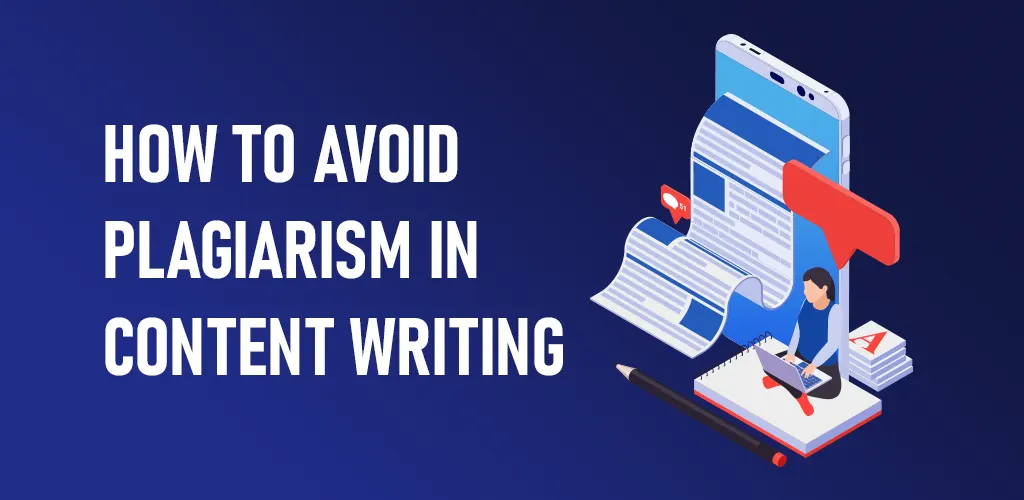Plagiarism in content writing is a serious issue that can harm your credibility, damage your reputation, and lead to legal consequences. Information is easily accessible, and the temptation to copy someone else’s work can be strong, but the risks far outweigh the convenience. Plagiarism weakens your writing integrity and affects the trust your audience places in you and your work. Avoiding plagiarism is essential for producing original and authentic content.
Adhering to ethical writing practices protects you from potential legal repercussions and contributes to a culture of honesty and respect in the content creation community. This guide provides practical strategies and tips to decrease content writing plagiarism and ensure your work is ethical and professional. Following these guidelines can confidently produce unique and credible content, enhancing your reputation as a trustworthy and responsible writer.
Understanding Plagiarism in Contents Writing
Plagiarism is the act of using someone else’s work or ideas without giving proper credit. In content writing, this can include copying text directly, paraphrasing too closely, or using someone else’s ideas without acknowledgment. Plagiarism can occur intentionally or unintentionally, but both are equally problematic.
Why is Avoiding Plagiarism Important?
Avoiding plagiarism is essential for maintaining the integrity and credibility of your work. It ensures that your content is original and trustworthy, which is important for building a loyal audience. Additionally, plagiarism can have legal ramifications, including fines and lawsuits, and can damage your professional reputation.
Effective Ways to Avoid Plagiarism in Content Writing

1. Conduct Thorough Research
Thorough research is the basis of good content writing. Gather information from multiple reputable sources to develop a complete understanding of the topic. This will help you create original content based on your own insights and analysis.
- Diverse Sources – Use many sources to gather information. This will reduce the risk of copying directly from a single source and help you synthesize information more effectively.
- NoteTaking – Take detailed notes and include proper citations for all the information you gather. This will make it easier to reference your sources accurately in your content.
2. Paraphrase Effectively
Paraphrasing is the process of rewriting information in your own words. While it is a useful technique, it is important to ensure your paraphrasing is not too close to the original text.
- Understand the Content – Make sure you fully understand the material before attempting to paraphrase. This helps you convey the same ideas in a new and unique way.
- Use Different Words and Structures – Change the wording and sentence structure significantly. Simply replacing a few words with synonyms is not enough to avoid plagiarism.
3. Use Quotes and Citations
When using someone else’s exact words or ideas, it is essential to use quotes and citations to give proper credit.
- Quotations – Use quotation marks to indicate direct quotes and include a citation with the source information.
- Citations – Include intext citations and a bibliography or reference list at the end of your content. This allows readers to verify your sources and gives proper credit to the original authors.
4. Utilize Plagiarism Detection Tools
Plagiarism detection tools can help identify instances of plagiarism in your content. These tools compare your text against a vast database of sources and highlight any similarities.
- Online Tools – Use reputable online plagiarism checkers such as Grammarly, Turnitin, or Copyscape. These tools can help you identify and address potential issues before publishing your content.
- Regular Checks – Make it a habit to check your content for plagiarism regularly. This practice ensures that your work remains original and free from unintentional plagiarism.
5. Develop Your Unique Voice
Having a unique writing style and voice can help you avoid plagiarism and create engaging content that resonates with your audience.
- Consistent Tone – Develop a consistent tone and style that reflects your brand or personal identity. This makes your content distinctive and memorable.
- Personal Insights – Incorporate your own experiences, opinions, and insights into your writing. This adds originality and authenticity to your content.
6. Educate Yourself on Copyright Laws
Understanding copyright laws and fair use policies is essential for content writers. This knowledge helps you navigate the complexities of using and citing sources correctly.
- Fair Use – Familiarize yourself with the concept of fair use, which allows limited use of copyrighted material without permission under certain conditions.
- Copyright Infringement – Learn about the different types of copyright infringement and how to avoid them. This includes understanding the rules for using images, videos, and other multimedia content.
Role of Ethics in Content Writing
Ethics play a crucial role in content writing. Upholding ethical standards ensures that your work is not only legally sound but also morally right. Here are some ethical practices to follow:
- Respect Intellectual Property – Always give credit to the original creators of the content.
- Avoid Misleading Information – Ensure all information provided is accurate and reliable.
- Disclose Conflicts of Interest – Be transparent about any affiliations or interests that may influence your content.
5 Common Types of Plagiarism in Content Writing
Understanding the different types of plagiarism can help you avoid them. Here are some common types:
- Direct Plagiarism – Copying text word-for-word without attribution.
- Self-Plagiarism – Reusing your own previously published content without acknowledgment.
- Mosaic Plagiarism – Piecing together ideas from different sources without proper attribution.
- Accidental Plagiarism – Unintentionally failing to cite sources correctly or paraphrase adequately.
Consider Professional Content Writing Services

At The Set Site, we understand the importance of creating original and high-quality content. Our team of Professional Content Writers is dedicated to producing plagiarism free content that meets the highest standards of excellence.
Whether you need blog posts, articles, or website content, we offer comprehensive content writing services tailored to your needs.
Our Services Include:
- Custom Content Creation – We create unique and engaging content tailored to your brand and audience.
- SEO Optimization – Our content is optimized for search engines, helping you improve your online visibility and reach.
- Thorough Research – We conduct extensive research to ensure accuracy and depth in our content.
- Plagiarism Checks – All our content undergoes rigorous plagiarism checks to ensure originality and authenticity.
Partner with thesetsite.co.nz for professional content writing services that you can trust. Contact us today to learn more about how we can help you achieve your content goals.
Conclusion
In conclusion, avoiding plagiarism in content writing is essential for maintaining the integrity and credibility of your work. You can produce original and ethical content by conducting thorough research, paraphrasing effectively, using quotes and citations, utilizing plagiarism detection tools, developing your unique voice, and educating yourself on copyright laws. Doing so, you contribute positively to the broader content community and solidify your reputation as a reliable and professional writer.
Partnering with reputable services can be a wise investment for those seeking to elevate their content writing to professional standards. The Set Site offers expert content writing services that guarantee originality and quality, ensuring your content stands out in a crowded market.







